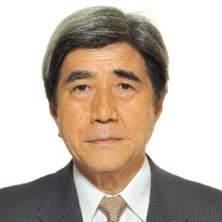
Tetsuo Shoji
Professor
Member of the Japan Academy of Engineering
Tohoku University, Japan
Biography: Tetsuo Shoji had been serving as a Professor of Tohoku University since 1986 until March 2018 and an Executive Vice-President for research and international affairs of Tohoku University since 2005 for 3 years. He was honored as a Professor Emeritus of Tohoku University in 2015. Now he continues his research work as a Senior Research Fellow at New Industry Creation Hatchery Center (NICHe) of Tohoku University. He has served as the PI of various national and international programs such as the Center of Excellence Program on Physics and Chemistry of Fracture and Failure Prevention, the Co-Director of CNRS LIA ELyT laboratory and International cooperative research programs of PEACE, POLIM and SMEtana, working on mechanics and mechanisms of Environmentally Assisted Degradation. He has received 22 national and 9 international awards such as W. R. Whitney Award NACE USA, the Lee Hsun Award CAS CHINA, the Great Medal from CEFRACOR France in 2016, UR Evans Awards from the Institute of Corrosion UK in 2019, Marcel Pourbaix Award ICC (International Corrosion Council) in 2021 and Beijing Science and Technology Award – Zhongguancun Award for International Cooperation in 2023. He was appointed as a Council Member of Science Council of Japan in 2011 for 7 years by the Prime Minister and was elected as a Member of Science Council of Japan in 2018 for 6 years and elected as a member of the Japan Engineering Academy. He published more than 600 journal papers.
Invited Lecture: Mechanics and mechanisms of environmentally assisted cracking and its implication to structural integrity assessment
Abstract: The structural integrity of NPP components is properly assessed using Fracture Mechanics in terms of subcritical and critical crack growth by the appropriate Code and Standard. In case of environmentally assisted cracking (EAC) such as stress corrosion cracking (SCC) in welded structures and components, weld residual stress distribution can affect stress intensity factor, K value with crack growth, where the K value can be increased or decreased with crack growth. Negative dK/da with crack advance likely happens when crack growth reaches either in the region of decreasing tensile residual stress and/or in the region of compressive residual stress. In this study, the effects of negative dK/dt on SCC crack growth retardation behaviour were examined based on the experimental and theoretical/numerical study. Crack growth tests were performed to simulate crack growth under K decreasing condition by use of CDCB specimens of Ni-base alloy 182 and a pressure vessel steel under load control condition. Results on alloy 182 demonstrated a crack growth rate decreased when crack growth took place under K decreasing condition and even crack growth stopped under rather higher K decreasing condition. The numerical analysis of the equation indicates that both K and dK/dt affect the CGR and the K decreasing stress field slows down a crack growth rate and may stop a crack growth under some condition, suggesting non uniqueness of crack growth rate as a function of K depending upon EAC test condition of K increasing or K decreasing tests. More detailed results and its implication to structural integrity assessment will be discussed.


